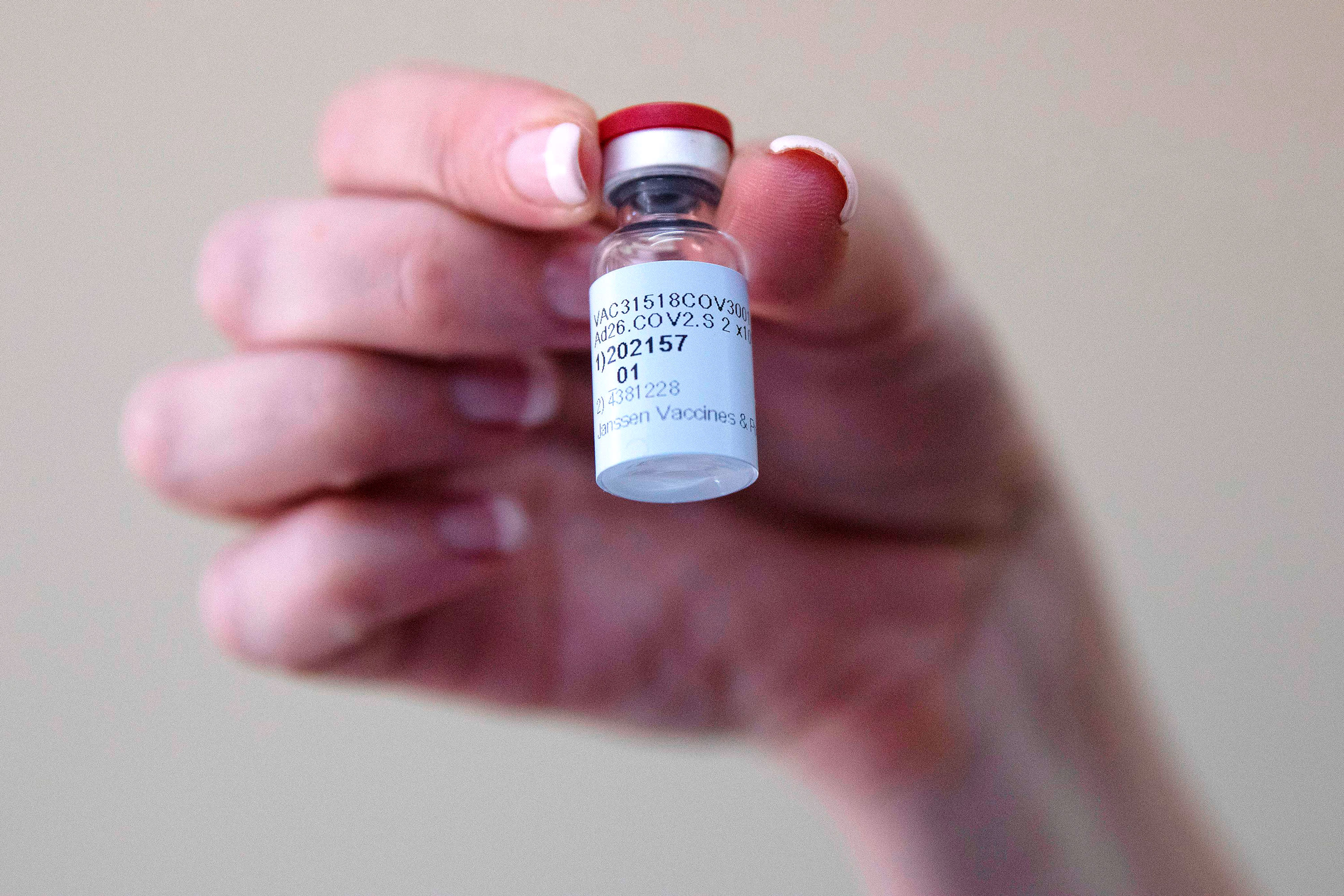CDC panel recommends Pfizer, Moderna vaccines over J&J shots for adults due to rare blood clot cases

A healthcare worker holds a dose of the Johnson & Johnson vaccine.
Phill Magakoe | AFP | Getty Images
An advisory panel for the Centers for Disease Control and Prevention on Thursday recommended Pfizer and Moderna‘s vaccines over Johnson & Johnson‘s shot for adults 18 and over, after finding dozens of people developed a rare blood clot condition following J&J vaccination, all of whom were hospitalized and nine of whom died.
The Advisory Committee on Immunization Practices voted unanimously to recommend Pfizer and Moderna over the Johnson & Johnson vaccine. The recommendation applies to first shots and boosters. CDC Director Rochelle Walensky still has to weigh in.
The CDC has confirmed 54 cases of people developing blood clots and showing low blood platelet levels, a new condition called thrombosis with thrombocytopenia syndrome that mostly affects younger women. All of the patients were hospitalized, nine people died and 36 were treated in intensive care.
“The TTS case reporting rates following Janssen vaccines is higher than previous estimates in men as well as women in a wider age range,” Dr. Keipp Talbot, chair of the the CDC’s vaccine and safety subgroup, told the advisory panel.
Seven of the patients who died were women and two were men with a median age of 45. Most the people who died had underlying health conditions such as obesity, hypertension and diabetes. The death reporting rate was 0.57 fatalities per million doses administered, according to the CDC.
“We’ve been struck on reviewing these cases by how rapidly patient status deteriorates and results in death,” Dr. Isaac See, with the CDC’s vaccine safety team, told the advisory panel.
Patients typically developed symptoms 9 days after vaccination and were hospitalized 5 days after they developed symptoms, according to the CDC. The overwhelming majority of patients were women, 37 total, and the median age was 44. Seventeen men developed TTS.
Johnson & Johnson’s Penny Heaton, global therapeutics area head for vaccines, defended the company’s shot during the meeting, saying it “is saving lives here in the USA and on every continent around the globe.”
“It’s easy to store and transport,” Heaton said. “In many low and middle income countries, our vaccine is the most important and sometimes the only option even in the US, given its durable protection may be the preferred choice for people who can’t or won’t return for multiple vaccinations.”
Heaton said J&J recognizes the incidents of TTS associated with the vaccine and that the condition can be fatal, though the cases are rare. She said patient safety and well being remains J&J’s top priority, and the company has several studies underway to identify risk factors associated with the development of TTS.
In April, the Food and Drug Administration and the CDC briefly halted the use Johnson & Johnson’s single-shot vaccine, after six adult women developed blood clots and low blood platelet levels at the same time.
A week later, the FDA and the CDC lifted the pause on J&J shots after the independent advisory panel said the benefits of the shots outweighed the risks. The panel at the time did not recommend restricting the shots by age or gender. It did propose that the FDA add a warning label for women younger than 50.
The FDA has told health-care providers that they shouldn’t administer a J&J booster to people who have a history of developing TTS after the first shot. The FDA also said the J&J shot should not be administered to people who received AstraZeneca’s vaccine, though AstraZeneca is not authorized for use in the U.S.
CDC experts on Thursday said no TTS cases have been identified in people who have received J&J booster doses, though the number of boosters is relatively small.
“Currently available evidence supports a causal relationship between TTS and the Janssen COVID-19 Vaccine,” the FDA said in the factsheet for health-care providers.
In October, the FDA and CDC authorized J&J boosters for all adults at least two months after receiving their initial J&J shot. More than 800,00 people have received J&J boosters, according to CDC data. People who received their primary vaccination with the J&J shot can also get boosted with the Pfizer or Moderna vaccines.
This is breaking news. Please check back for updates.




